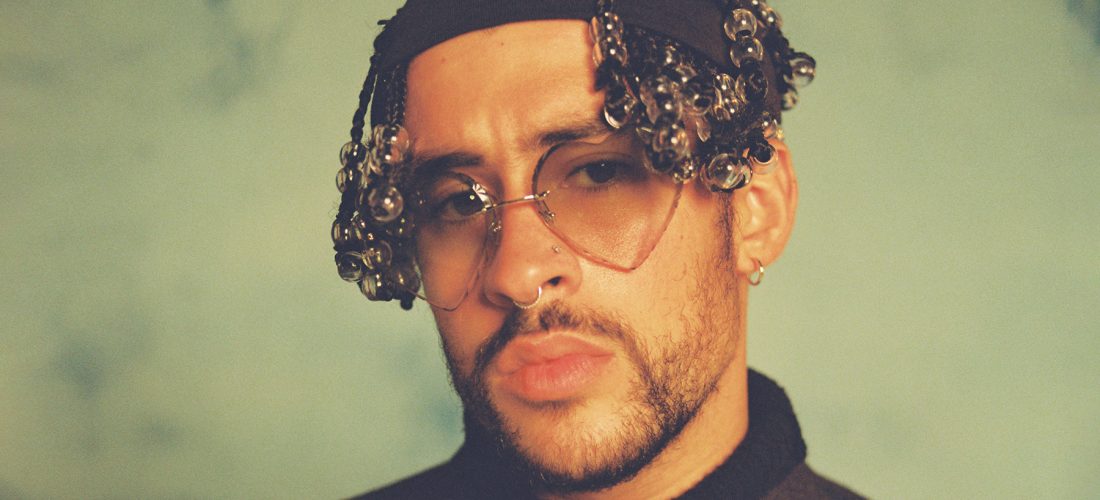Bad Bunny Is Predictably Unpredictable on ‘El Último Tour del Mundo’
Bad Bunny has always looked ahead. When his sophomore effort YHLQMDLG dropped last February, the Puerto Rican rapper already had his mind on his next project. On YHLQMDLG‘s final track, “<3,” he announced that he’d be back in nine months with a follow-up release that would likely be his last. He was true to at least part of his word: Bad Bunny shared recently that he doesn’t actually plan to retire any time soon but his third album, El Último Tour Del Mundo, or The Last Tour Of The World,” did come around midnight on Thanksgiving, right when he said it would.
By now, Bad Bunny’s output has become predictably unpredictable, and El Último Tour Del Mundo is a wildcard of an album that indulges his alt-driven impulses. He’s still working within the framework of the reggaeton and trap styles he’s known for, but he fills these productions with a generous heap of spangled synths and serrated guitars. None of these sounds are completely new to him: His debut album, 2018’s X100Pre, included the careening ode to pop-punk, “Tenemos Que Hablar,” and the metal breakdown of “Hablamos Mañana” is one of the many peaks on YHLQMDLG. However, those tracks came across as single strokes of inspiration within already-eclectic palettes, like flashes of neon in a rainbow. On El Último Tour del Mundo, Bad Bunny embeds rock, new wave, and electronic influences evenly across the tracklist, resulting in his most offbeat, experimental project yet.
He’s called El Último Tour Del Mundo a “dark” record and explained it’s “more chill” approach was partially a response to fans who lamented that the pandemic kept them from partying to YHLQMDLG’s old-school reggaeton homages. “I said, “OK. Now you can’t complain,’” he joked recently. However, objections may still abound — while this album is his most idiosyncratic, it’s probably his most polarizing. Listeners expecting the instant, kinetic rush of perreo hits such as “Safaera” or “La Romana” will have to adjust to more tempered beats and laidback harmonies. Of course, within a reggaeton scene that is often limited and risk-averse, any kind of inventiveness is a welcome gust of fresh air. Plus, an undeniable sense of euphoria does come in the thrashing “Yo Visto Así,” the spiky “Maldita Pobreza,” and the wavy, Jhay Cortez-assisted “Dakiti” — all which speak to Latinx kids who grew up with a motley assortment of influences ranging from Daddy Yankee to the Deftones.
As a songwriter, Bad Bunny has always had an unabashedly sentimental side, and his feelings live on the forefront of these songs. There’s an emotional payout in break-up bangers such as “Te Mudaste” and “Te Deseo Lo Mejor,” while a bleak, brooding vibe lurks even on “Hoy Cobré,” one of the album’s few trap moments. The emotion isn’t aimless; it’s specifically tied to the overwhelming isolation and pain of the pandemic. (Bad Bunny actually tested positive for COVID-19 just days before the album came out.) Yet for all of the moodiness involved, some sonic flourishes offer levity. A cheery sample of the late astrologer Walter Mercado’s voice appears on “Antes Que Se Acabe,” while the shoegaze ballad “Trellas” sounds like it could score a tender scene in a Gregg Araki film.
Bad Bunny has also done some work to correct his tendency towards testosterone-heavy collaborations. Scour through the tracklists of his previous albums and the features are made up entirely of male artists–one exception being the quarantine anthem, “Yo Perreo Sola,” which included uncredited vocals from the Puerto Rican singer Nesi. Bad Bunny eventually debuted a remix of the song that properly recognized Nesi and added Ivy Queen; here, he shares the mic with more women. The Spanish singer Rosalia lends her signature airiness to “La Noche de Anoche,” but the collaboration that fits best on this album is the upbeat “Sorry Papi” with the Atlanta fusionist ABRA.
El Último Tour Del Mundo isn’t by any means a repudiation of the genres that have made Bad Bunny a star; if anything, it’s proof of how far they can stretch. He’s not likely to ever let go of the Puerto Rican sounds that have shaped him — in fact, the album’s final song, “Cantares de Navidad,” is a traditional holiday song by Trio Vegabajeño, a band from his hometown. The song neatly ties the bow on an album that reminds us that he’s a traditionalist, a rabble-rouser, and an eccentric all at once.
